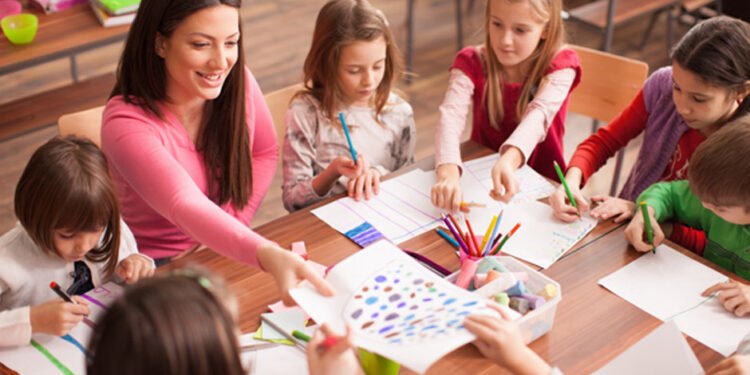Music schools serve as vibrant environments where students can immerse themselves in a world of sound, rhythm, and creativity. They provide an essential platform for nurturing musical talents and collaborative skills that can be beneficial throughout life. We will explore how music schools encourage creativity and teamwork among students. By understanding how these institutions cultivate an environment conducive to artistic expression, we can appreciate the broader impact of music education on individual growth and community engagement.
Encouraging Individual Expression
At the core of music education is the emphasis on individual expression. Music schools allow students to explore their unique sounds, styles, and artistic visions. Students are encouraged to delve deep into their creativity through lessons on a specific instrument, voice training, or songwriting workshops. Instructors often provide guidance that helps students discover their musical voice while respecting their individuality. This focus on personal expression fosters an atmosphere where creativity can flourish. Students who are free to experiment and innovate are more likely to develop original ideas and compositions. Additionally, sharing these creations with peers encourages a culture of appreciation and respect for each other’s artistry, thus further nurturing a sense of community within the school.
Collaborative Learning Experiences
Music schools are inherently collaborative environments where group activities are central to learn music lessons. From ensemble performances to collaborative songwriting sessions, students learn to work together to create harmonious outcomes. This collaboration enhances musical skills and builds essential life skills such as communication, compromise, and teamwork. When students come together to create music, they must listen to one another, respond to various musical ideas, and make collective decisions about arrangements and interpretations. These experiences can foster deep bonds among students, leading to lasting friendships and a support network that extends beyond the classroom. Moreover, collaborative projects can be especially powerful in breaking down barriers and encouraging inclusivity, allowing students from diverse backgrounds to come together to share their stories and perspectives through music.
The Role of Performance Opportunities
Live performances are a cornerstone of music education, serving as a testing ground for skills and celebrating creativity. Music schools often host recitals, concerts, and competitions, allowing students to showcase their talents in front of an audience. These opportunities boost confidence and create a shared experience that can strengthen community ties. Preparing for a performance requires extensive collaboration, as students must work together to refine their pieces, synchronize their efforts, and support each other throughout the process. This collective commitment to excellence can instill a strong work ethic and a sense of accountability among students. Moreover, witnessing peers perform can inspire creativity by exposing students to different musical styles and techniques, encouraging them to expand their artistic horizons.
Fostering a Growth Mindset
Music education inherently promotes a growth mindset, encouraging students to embrace challenges and view failures as learning opportunities. In a music school setting, students are frequently pushed beyond their comfort zones, whether through difficult compositions, new instruments, or performing in front of an audience. This focus on growth and resilience enhances musical abilities and builds confidence in students’ creative capacities. When students see their peers facing similar challenges and persevering, they will likely develop a supportive attitude toward each other. This culture of encouragement is crucial in helping students to take creative risks, as they learn that failure is often a stepping stone to greater success. By fostering this mindset, music schools prepare students to approach challenges in other areas of life with the same tenacity and creativity.
Building Community Connections
Music schools often extend their influence beyond the classroom through community engagement initiatives. Hosting events, workshops, and outreach programs creates opportunities for students to collaborate with local musicians, educators, and community organizations. These interactions can provide students with real-world experiences that enrich their understanding of music and its societal role. Working with diverse groups fosters creativity as students are exposed to various musical genres, traditions, and cultural perspectives. Such experiences highlight the collaborative nature of music and its power to connect individuals from different walks of life. Furthermore, students often find purpose through these initiatives, realizing that their musical talents can impact their communities. This connection enhances their commitment to music and strengthens their desire to use their skills for positive change.
Leveraging Technology for Collaboration
In today’s digital age, music schools are increasingly incorporating technology into their curricula, further enhancing opportunities for collaboration and creativity. Software and online platforms enable students to collaborate on projects remotely, share recordings, and receive feedback from peers and instructors alike. Virtual collaboration opens doors for students to work with musicians from around the globe, providing fresh perspectives and ideas that can influence their musical development. Additionally, technology can facilitate innovative approaches to music creation, allowing students to experiment with different sounds, loops, and production techniques. By embracing these tools, music schools prepare students for a rapidly evolving industry and cultivate a mindset that values innovation. This technological integration encourages a dynamic learning environment where creativity can thrive individually and collectively.
Music schools play a vital role in fostering creativity and collaboration among students. These institutions equip students with skills that extend beyond music by providing a nurturing environment that values individual expression, encourages teamwork, and offers diverse performance opportunities. Students’ collaborative experiences in music schools promote community connections and enhance personal growth. As we have explored, the importance of creativity and collaboration in music education cannot be overstated; they are foundational elements that prepare students to navigate challenges, embrace opportunities, and make meaningful contributions to society. Through their involvement in music schools, students develop as musicians and well-rounded individuals capable of inspiring others through their artistry.












